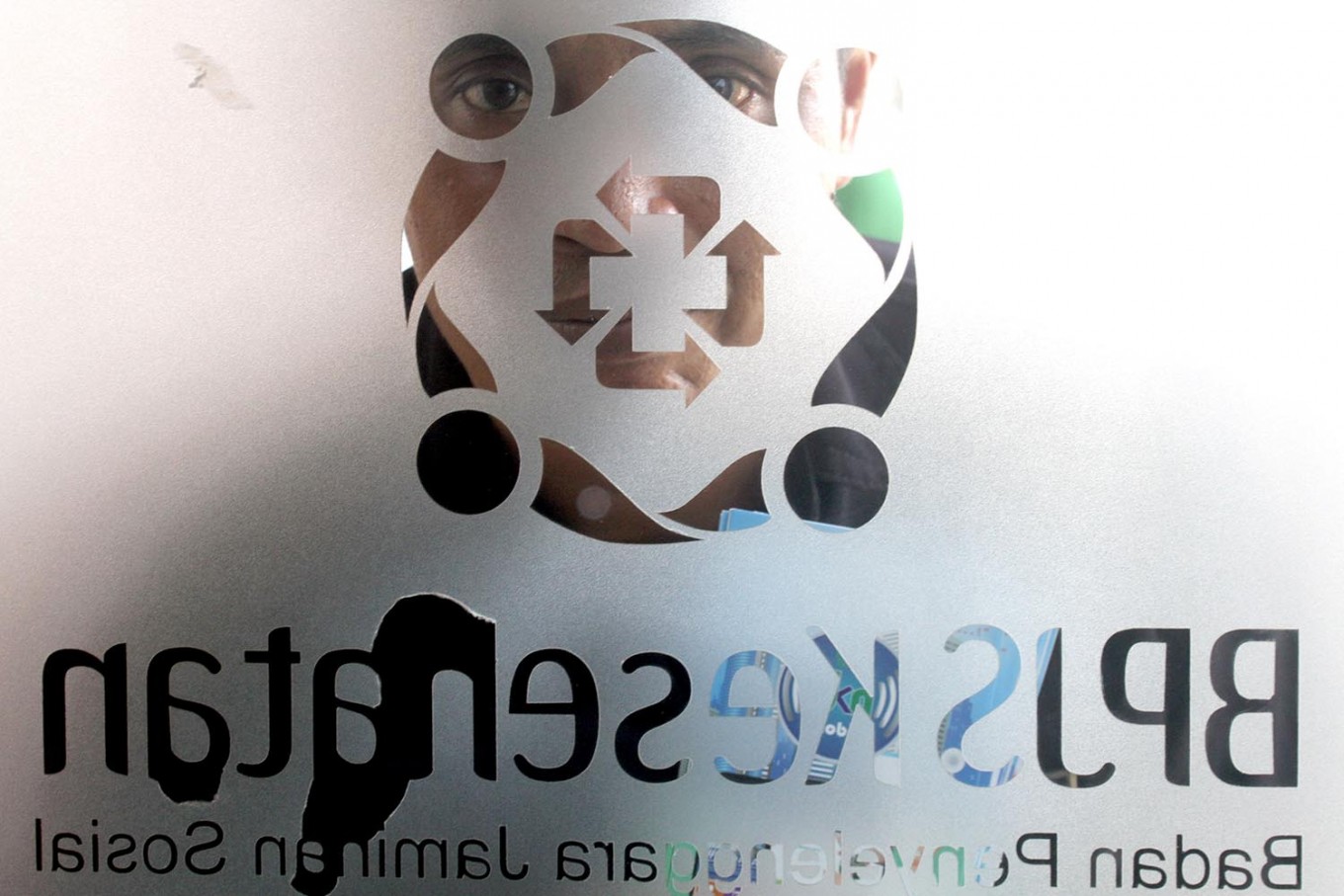Popular Reads
Top Results
Can't find what you're looking for?
View all search resultsPopular Reads
Top Results
Can't find what you're looking for?
View all search resultsCut your costs instead, antigraft body tells BPJS
The Corruption Eradication Commission (KPK) says its study of the finances of the Healthcare and Social Security Agency (BPJS Kesehatan), which runs the national health insurance system, shows it could save as much Rp 12.2 trillion (US$833 million) by enforcing better insurance claim management.
Change text size
Gift Premium Articles
to Anyone
T
he heavily indebted national healthcare system received a big blow when the Supreme Court rejected a hefty increase in premiums this month, but the Corruption Eradication Commission (KPK) says the government could cover the deficit by going for greater cost efficiency.
The KPK says its study of the finances of the Health Care and Social Security Agency (BPJS Kesehatan), which runs the national health insurance system, shows the agency could save as much Rp 12.2 trillion (US$833 million) by enforcing better insurance claim management.
BPJS Kesehatan recorded a Rp 13 trillion deficit last year as premium collection fell short while claims soared. It had begun collecting the higher premiums in January and meeting backpays of Rp 4 trillion owed to hospitals, but it must now refund the money and will likely stop paying hospitals following the court ruling.
Before the ruling, the premium for first-class service had been increased to Rp 160,000 from Rp 80,000, the second class to Rp 110,000 from Rp 51,000 and the third class to Rp 42,000 from Rp 25,000. Premiums approximately doubled across all service tiers.
The study of BPJS Kesehatan finances is a manifestation of the KPK’s new approach to fighting corruption: working with state institutions on ways to prevent corruption, rather than catching perpetuators of graft in the act. The KPK has regularly conducted such assessments since its establishment in 2003, but the recent study of BPJS was the first following the enactment of the new KPK law, which removed many of its tools to fight corruption, and the introduction of a new set of commissioners in December.
“The government assumed that the premiums weren’t enough, so it raised them,” KPK deputy chairman Nurul Ghufron said recently. “We at the KPK see it differently.”
The KPK study says the Health Ministry should enforce all essential medical practice guidelines to help hospitals limit unnecessary treatment. It notes that by June of last year, the ministry had only achieved 32 practice guidelines out of the 80 planned.
KPK deputy for prevention Pahala Nainggolan said BPJS Kesehatan could cut the cost of cataract operations, which in 2018 came to Rp 2 trillion.
“Because there is no guideline on how severe the eye blurring must be, people just went to get the cataract treatment, even when their eyes weren’t that blurry,” Pahala said.
He said the government should limit claims for diseases caused by “unhealthy lifestyles”, which he said included diabetes, cancer, strokes and kidney failure. The bill for these diseases in 2018 came to Rp 28 trillion, or around 30 percent of the year’s total claims.
The government could save Rp 2.8 trillion by limiting these claims, he said.
BJPS Kesehatan should fully enforce the requirement that customers pay 10 percent of the bill, especially for the economically able. This would bring savings of Rp 2.2 trillion from the Rp 22 trillion of individual claims in 2018.
A further Rp 6.6 trillion in savings could be made by readjusting hospital classes, Pahala said, noting that 898 out the 7,000 hospitals that partnered with BPJS Kesehatan had been put in the wrong class, leading to customers claiming more money than the actual cost of the services the hospitals had provided.
As about 4.5 million people have private health insurance, Pahala said, the government should coordinate with the private health insurers regarding the benefits clients are entitled to. He added that BPJS Kesehatan could allocate up to Rp 600 billion worth of claims every year to private insurers.
“BPJS Kesehatan can save Rp 12.2 trillion if it implements our recommendations,” he said, adding that the report had been submitted to the Health Ministry late last year after the appointment of minister Terawan Agus Putranto.
Launched in 2014, BPJS Kesehatan now covers about 223 million Indonesians, or 83 percent of the population, with more than 30 million individual customers and around 54 million workers covered by state institutions or private companies.
Even before the KPK study, many patients were already feeling the pinch as hospitals cut back services where they could. There were reports of patients being discharged 24 hours after surgery because hospitals had come under pressure from BPJS Kesehatan, which is reportedly scrutinizing all the bills they submit.
The KPK study notes that many individual customers, as opposed to those whose premiums are paid by their employers, stopped paying the premium after initial use. This caused Rp 5.6 trillion in premium arrears in 2018.
“We support the success of this universal healthcare program. Everyone in Indonesia has to be covered,” Pahala said. (mfp)










